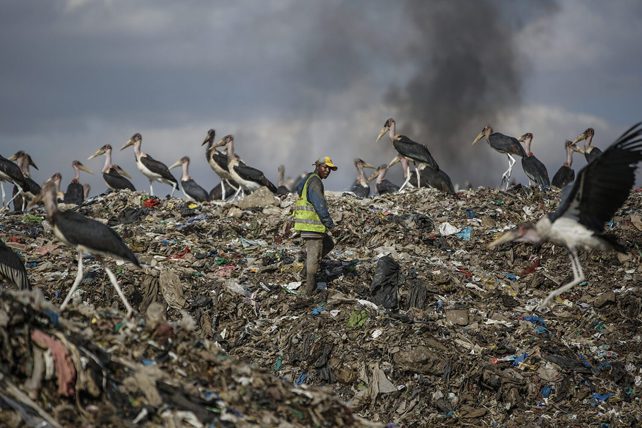WASHINGTON (RNS) — The National Association of Evangelicals unveiled a sweeping report Monday (Aug. 29) on global climate change, laying out what its authors call the “biblical basis” for environmental activism to help spur fellow evangelicals to address the planetary environmental crisis.
“Creation, although groaning under the fall, is still intended to bless us. However, for too many in this world, the beach isn’t about sunscreen and bodysurfing but is a daily reminder of rising tides and failed fishing,” reads the introduction of the report, penned by NAE President Walter Kim.
“Instead of a gulp of fresh air from a lush forest, too many children take a deep breath only to gasp with the toxic air that has irritated their lungs.”
But the authors admit persuading evangelicals is no small task, considering the religious group has historically been one of the demographics most resistant to action on the issue.
The nearly 50-page report, titled “Loving the Least of These: Addressing a Changing Environment,” opens with a section that insists protecting the environment is a biblical mandate.
RELATED: Majority of Protestant Pastors Believe Climate Change Is Human-Caused
“The Bible does not tell us anything directly about how to evaluate scientific reports or how to respond to a changing environment, but it does give several helpful principles: Care for creation, love our neighbors and witness to the world,” the report reads.
The authors go on to cite passages such as Genesis 2:15 (“God then took the man and settled him in the garden of Eden, to cultivate and care for it”), Matthew 22 (“Love your neighbor as yourself”) and Deuteronomy 15 (“Give generously to them and do so without a grudging heart”).
“We worship God by caring for creation,” the report reads.
Another section outlines the basic science behind climate change, but the report, produced in partnership with the NAE’s humanitarian arm World Relief, returns often to the real-world impacts of climate change, such as how air pollution created by fossil fuels can have negative outcomes for children’s health or disproportionately affect the poor.
Kim suggested the emphasis on lived experiences, which are often tied to churches or evangelical organizations, is by design.
RELATED: Faith Groups Increasingly Join Fight Against Climate Change
“One of the things that you’ll see in this document is not simply scientific information, though that is there, or biblical argumentation, although that is there, but you also hear stories of actual impact on communities,” he told Religion News Service in an interview.
Real-world examples help readers “understand the human dimension of the impact of climate change,” he explained.
“I think people of faith responded very deeply, because we’re wired to follow in the footsteps of Jesus of loving God and loving our neighbor.”
Nia Riningsih, one of few residents who stayed behind after most of her neighbors left due to the rising sea levels that inundated their neighborhood on the northern coast of Java Island, checks salted fish she dries as her daughter Safira plays at their house in Mondoliko village, Central Java, Indonesia, Nov. 7, 2021. (AP Photo/Dita Alangkara)
Dorothy Boorse, a biology professor at Gordon College and the chief author of the report, agreed.

